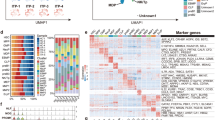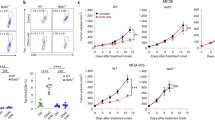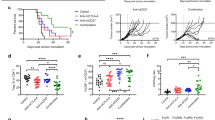Abstract
CD99 plays an critical role in the diapedesis of monocytes, T cell differentiation, and the transport of MHC molecules. Engagement of CD99 by agonistic monoclonal antibodies has been reported to trigger multifactorial events including T cell activation as well as cell-cell adhesion during hematopoietic cell differentiation. In this study, to identify the functional domains participating in the cellular events, we mapped the epitopes of CD99, which are recognized by two agonistic CD99 monoclonal antibodies, DN16 and YG32. Using recombinant fusion proteins of GST with whole or parts of CD99, we found that both antibodies interact with CD99 molecules independently of sugar moieties. DN16 mAb detected a linear epitope located in the amino terminal region of CD99 while YG32 mAb bound another linear epitope in the center of the extracellular domain. To confirm that the identified epitopes of CD99 are actually recognized by the two mAbs, we showed the presence of physical interaction between the mAbs and the fusion proteins or synthetic peptides containing the corresponding epitopes using surface plasmon resonance analyses. The dissociation constants of DN16 and YG32 mAbs for the antigen were calculated as 1.27 X 10(-7) and 7.08 X 10(-9) M, respectively. These studies will help understand the functional domains and the subsequent signaling mechanism of CD99.
Similar content being viewed by others
Article PDF
Author information
Authors and Affiliations
Rights and permissions
This is an Open Access article distributed under the terms of the Creative Commons Attribution Non-Commercial License (http://creativecommons.org/licenses/by-nc/3.0/) which permits unrestricted non-commercial use, distribution, and reproduction in any medium, provided the original work is properly cited.
About this article
Cite this article
Gil, M., Lee, MH., Seo, JI. et al. Characterization and epitope mapping of two monoclonal antibodies against human CD99. Exp Mol Med 34, 411–418 (2002). https://doi.org/10.1038/emm.2002.58
Published:
Issue date:
DOI: https://doi.org/10.1038/emm.2002.58
Keywords
This article is cited by
-
Protein expression and gene promoter hypermethylation of CD99 in transitional cell carcinoma of urinary bladder
Journal of Cancer Research and Clinical Oncology (2011)



